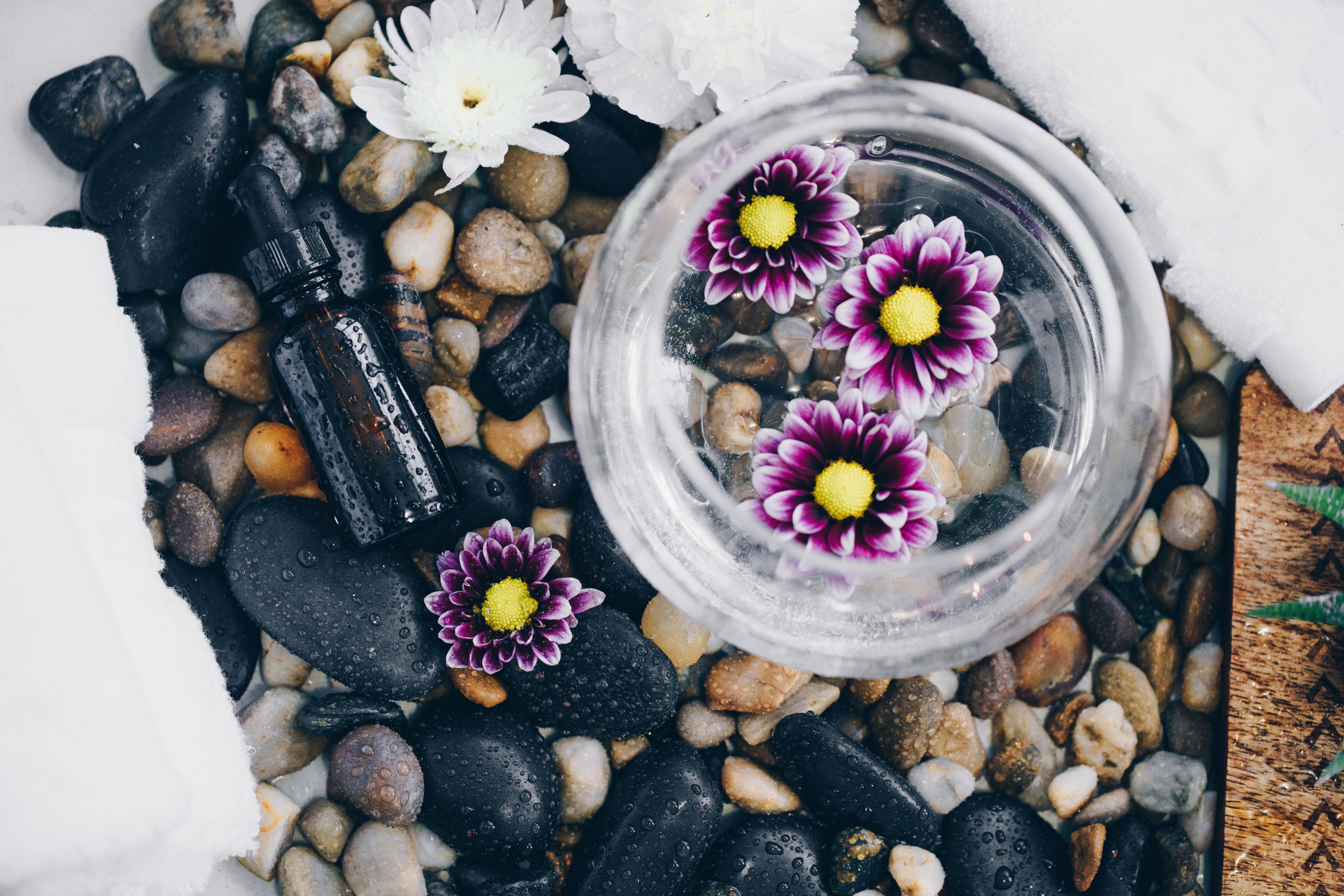Natural Skin Oil Serums from Mother Earth
Erica Kuo
Registered Herbalist (AHG), Clinical Herbalist (NAHA), MIFPA, Master Gardener, Licensed Insurance Producer.
The key concept in natural skincare is the idea of "water in oil" or "oil in water." In this context, water is often used as natural toner in the form of organic floral waters, and oil can be used as a natural serum with infused or cold-pressed oils. It's important to ensure that the floral waters and oils are sourced from reputable and chemical-free plants, as many are treated with radiation or chemical agents.
Here's an analysis of common cold-pressed oils based on the golden cold-pressing criteria, which involves mechanically pressing plant fruits at temperatures below 50 degrees Celsius, with advanced techniques even lowering the temperature to 38 degrees. This preserves more antioxidants and anthocyanins in the plants, helping with skin repair. If the cold-pressing machinery is food-grade, these oils can also be used as edible oils, such as raspberry oil, pumpkin seed oil, cranberry oil, and olive oil, suitable for salad dressings and raw food consumption to avoid damage from heating.
Cold-pressed oils can be categorized into refined and unrefined oils. Refined oils have a longer shelf life and are less prone to oxidation or developing an off flavor, so it's recommended to purchase small quantities of unrefined cold-pressed oils, preferably in 30ml to 100ml sizes, to avoid oxidation when stored for extended periods.
Here is a breakdown of various cold-pressed oils and their skincare benefits:
- Sweet Almond Oil: Often used as a massage base oil, it helps with skin renewal and reducing fine lines.
- Sunflower Seed Oil: Suitable for combination skin, especially when it's cold-pressed and unrefined. Mass-market sunflower seed oils are often low-quality and refined.
- Apricot Kernel Oil: Like sweet almond oil, it is light and easily absorbed, suitable for dry and dehydrated skin.
- Grape Seed Oil: Ideal for massage for those allergic to nuts, and it's safe for normal, oily, and combination skin.
- Olive Oil: A Mediterranean staple, it's beneficial for skin, but it has a strong aroma and can be mixed with other oils for better scent.
- Kukui Nut Oil: Native to Hawaii, it helps prevent dryness, dehydration, and scar healing.
- Borage Seed Oil: Rich in gamma-linolenic acid (GLA), it's suitable for mature and wrinkled skin.
- Rosehip Oil: Promotes collagen formation and is beneficial for acne and scars.
- Raspberry Seed Oil: High natural sun protection factor (SPF 28-50), hydrating, anti-inflammatory, and antioxidant properties make it suitable for all skin types.
- Cranberry Seed Oil: Protects skin and hair from sun damage and helps prevent urinary tract infections.
-
Macadamia Nut Oil: Similar to sweet almond oil but with a chocolatey scent.
-
Jojoba Oil: It's a liquid wax, which makes it resistant to oxidation. It's used for scar repair and can be mixed with other oils to extend the shelf life of products.
-
Avocado Oil: Creamy in texture but not greasy, it locks in moisture and can help with skin inflammation and conditions like psoriasis.
-
Black Cumin Seed Oil: Known for its anti-inflammatory and antibacterial properties, it's suitable for allergies and hair growth.
-
Pomegranate Seed Oil: Similar in function to evening primrose oil, it's good for inflammatory skin repair and can aid in healing damaged mucous membranes.
-
Hazelnut Oil: Similar in effect to sweet almond oil but with a cocoa aroma.
-
Evening Primrose Oil: Beneficial for mature and wrinkled skin, it supports skin texture and cell growth. It's also suitable for eczema and dry hands.
-
Safflower Oil: Has a strong aroma and can be used for scar reduction but is often mixed with other oils due to its smell.
-
Blackcurrant Oil: Similar to evening primrose and black cumin seed oil, it's used for joint pain, allergies, and skin aging.
-
Shea Butter: It's a solid fat that can be used for wound healing, moisturizing, and exfoliation, though it may cause breakouts in some individuals.
-
Hydrogenated Coconut Oil: Unlike regular coconut oil, it stays liquid and is used for detoxifying the scalp and hair.
-
Pumpkin Seed Oil: Green in color, it's used to protect the prostate gland and is highly moisturizing.
-
Milk Thistle Oil: Supports blood sugar and liver cell recovery. It can also be used for skincare to detoxify and delay aging.
-
Flaxseed Oil: Thick in consistency and not typically used on the face. It's used in shampoo bars and lip balms. In Germany, it's applied with hot compresses on the liver, kidneys, and lymph nodes for detoxification.
-
Most cold-pressed and infused oils have a short shelf life, typically about one year. Some may last up to two years. It's advisable to use a prepared serum within three months for optimal effectiveness, and any unused cold-pressed oils should be stored in the refrigerator to maintain their potency.Here are some skincare formulas using organic cold-pressed oils:
- 10ml Organic Raspberry Oil
- 5ml Organic Rosehip Oil
- 5ml Organic Sunflower Seed Oil
- 4 drops Australian Sandalwood Essential Oil
- 2 drops Frankincense Essential Oil
- 4 drops Sweet Orange Essential Oil
- Combination Skin Serum:
- 10ml Rosehip Oil
- 5ml Calendula Infused Oil (or Rose-infused oil or Evening Primrose-infused oil)
- 5ml Apricot Kernel Oil
- 4 drops Rose Geranium Essential Oil
- 2 drops Roman Chamomile Essential Oil
- 4 drops Linaloe Wood (or Frankincense or Carrot Seed) Essential Oil
- Oily Skin Serum:
- 10ml Cold-pressed Raspberry Oil
- 5ml Rosehip Oil
- 5ml Unrefined Jojoba Oil
- 4 drops Lemon (or Tea Tree) Essential Oil
- 4 drops Frankincense Essential Oil
- 2 drops Ylang Ylang Essential Oil
- Eczema Relief Serum:
- 10ml Calendula Infused Oil (or Cold-pressed Raspberry Oil)
- 5ml Evening Primrose Oil (or Moroccan Argan Oil)
- 5ml Chamomile Infused Oil
- Formula A: 2 drops Neroli, 4 drops German Chamomile, 2 drops Helichrysum Essential Oil
- Formula B: 6 drops Lavender Absolute, 2 drops Frankincense, 2 drops German Chamomile (or Roman Chamomile)






